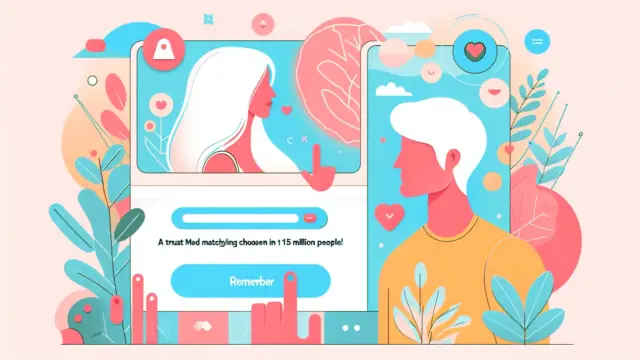Understanding jealousy can be a journey into the heart of human emotions, especially when it comes to romantic relationships. It’s a feeling that can spark intense reactions, leading to both misunderstandings and deeper connections. For men, jealousy often ties into their personalities in unique ways, especially when we consider the influence of blood type. Have you ever wondered how your partner’s blood type might affect their feelings of jealousy?
In this article, we will explore what jealousy means psychologically and how it manifests in romantic partnerships. We will delve into the distinct traits associated with different blood types and uncover how these traits can shape their expressions of jealousy. By understanding these dynamics, you can gain insights into your own relationships and learn to navigate the complexities of jealousy in a healthier way.
Whether you’re dealing with jealousy yourself or trying to understand a partner’s emotions, this guide will provide valuable perspectives. Let’s embark on this exploration of jealousy and discover how personality traits, influenced by blood type, can provide a deeper understanding of love and relationships.
- Discover the psychological definition of jealousy and its effects on relationships.
- Learn how blood type influences jealousy trends in men.
- Explore effective strategies to confront and communicate about jealousy.
What is the Psychology of Jealousy?
Definition of Jealousy and Its Effects
Jealousy is more than just a fleeting emotion; it’s a complex psychological state that can stem from feelings of insecurity, fear of loss, or even a perceived threat to one’s relationship. For many men, this emotion can run deep, often leading to various reactions that may surprise both them and their partners. Understanding what jealousy truly is can help us navigate these feelings more effectively.
At its core, jealousy can be viewed as a protective mechanism. It prompts individuals to assess their relationships and figure out what truly matters to them. However, when it becomes overwhelming, it can lead to destructive behaviors, misunderstandings, and even conflict. Recognizing when these feelings arise and understanding their origins is essential in maintaining a healthy relationship.
When we dive deeper into the effects of jealousy, we find that it can create rifts in communication and trust. Instead of bringing partners closer, unchecked jealousy can push them apart, leading to feelings of resentment and frustration. Thus, it’s crucial to address jealousy head-on, transforming it into a conversation starter rather than a relationship ender.
- Jealousy is a protective mechanism rooted in insecurity and fear of loss.
- It can create misunderstandings and conflict if left unaddressed.
- Open communication about jealousy can strengthen relationships.
Impact of Jealousy on Romantic Relationships
The impact of jealousy on romantic relationships can vary greatly depending on how it’s managed. When couples openly discuss their feelings, it can lead to a deeper understanding of each other, fostering a stronger bond. However, if jealousy is allowed to fester, it can create barriers that are difficult to overcome.
For many men, the way jealousy manifests can be influenced by their blood type, which adds another layer to the emotional landscape. Some blood types may lean towards more intense feelings of jealousy, while others may express it in subtler ways. This can shape how men react in various situations, affecting their relationships profoundly.
By recognizing these patterns, partners can better support each other through moments of jealousy. This understanding can pave the way for healthier interactions and a more fulfilling relationship.

If you’re intrigued by the dynamics of jealousy and its impact on relationships, you might find additional insights in this article: Discover the Psychology Behind Women Saying Goodbye and Meet a New You!. It explores emotional shifts and the reasons behind significant relationship decisions, complementing our understanding of jealousy in romantic contexts.
- Jealousy can deepen relationships if addressed openly.
- Blood type may influence how men express jealousy.
- Recognizing patterns helps partners support each other effectively.
Blood Type Personalities and Jealousy
Jealousy Trends in Type A Men
When it comes to Type A men, jealousy can often be a complex emotion. These individuals tend to be more detail-oriented and sensitive to their partner’s actions. This heightened sensitivity means that they might interpret even the slightest change in their partner’s behavior as a potential threat. Consequently, jealousy can run deep for Type A men, manifesting in ways that can be both protective and sometimes restrictive.
Their strong desire for harmony and stability in relationships can lead them to feel insecure when they sense competition. Instead of expressing their feelings openly, Type A men may internalize their jealousy, which can lead to misunderstandings. It’s essential for partners to create an environment where they feel comfortable discussing their emotions without fear of judgment.
Moreover, Type A men often seek reassurance from their partners. This need for validation can sometimes come off as clinginess, but it’s rooted in their need for emotional security. When partners understand this, they can provide the support Type A men crave, transforming jealousy into a dialogue that strengthens their bond.
- Type A men may internalize jealousy, leading to misunderstandings.
- They often seek reassurance, which can come off as clinginess.
- Creating a supportive environment encourages open discussions about emotions.
Jealousy Trends in Type O Men
On the other hand, Type O men express their jealousy in a more straightforward manner. Known for their confidence and outgoing nature, they might be more likely to confront their feelings head-on. However, this doesn’t mean they are immune to jealousy; rather, their approach can lead to more vocal expressions of concern or frustration.
Type O men often take a competitive stance when faced with jealousy. They might feel compelled to prove their worthiness, which can sometimes lead to unhealthy competition with perceived rivals. This can create tension in relationships if not navigated carefully. Partners should be aware of this tendency and encourage open conversations that allow Type O men to express their feelings without escalating the situation.
Additionally, their straightforwardness can be both a strength and a weakness. While it allows for transparency, it can also lead to hurt feelings if partners misinterpret their candidness as aggression. Understanding this dynamic can help foster a more supportive relationship, where both partners feel heard and validated.

If you’re intrigued by how different personalities can influence relationship dynamics, you might find it beneficial to explore the article titled What Does It Mean When a Man Lends You Things? Unveiling Hidden Intentions in Love!. This piece delves into the psychological motivations behind men lending personal items, offering insights that could enhance your understanding of your partner’s intentions and deepen your connection.
- Type O men confront jealousy directly, often expressing their feelings openly.
- They may feel compelled to compete, leading to tension in relationships.
- Encouraging open conversations helps partners navigate jealousy healthily.
Exploring the Root Causes of Jealousy
Relationship Between Self-Esteem and Jealousy
Self-esteem plays a crucial role in how men experience and express jealousy. When a man’s self-worth is rooted in external validation, feelings of jealousy can intensify, often leading to unhealthy behaviors. For instance, if a man feels insecure in his relationship, he may interpret his partner’s interactions with others as threats. This perception can trigger deep-rooted feelings of inadequacy, causing jealousy to surface in ways that may be unexpected.
Men with higher self-esteem, on the other hand, are generally more secure in their relationships. They are less likely to feel threatened by their partner’s friendships or social activities. This doesn’t mean they are immune to jealousy, but they usually approach it more constructively. Understanding the connection between self-esteem and jealousy can help partners foster a supportive environment where both individuals feel valued and secure.
It’s important to encourage open discussions about self-worth and its impact on feelings of jealousy. By addressing these underlying issues, partners can create a strong foundation built on mutual respect and understanding. This approach not only reduces jealousy but also strengthens the overall bond between partners.
- Self-esteem significantly influences how men experience jealousy.
- Men with high self-esteem tend to approach jealousy more constructively.
- Open discussions about self-worth can help reduce feelings of jealousy.
Past Trauma and Jealousy
Past experiences can shape how men perceive relationships, particularly when it comes to jealousy. Men who have experienced betrayal or loss in previous relationships may carry those scars into new partnerships. This history can lead to heightened sensitivity towards perceived threats, making them more prone to jealousy. Understanding this can be key to addressing their emotional responses.
By acknowledging the impact of past trauma, partners can work together to navigate the complexities of jealousy. It’s essential to create a safe space where both individuals can express their fears and insecurities. This can lead to healing and a deeper understanding of each other’s emotional landscapes.
In many cases, addressing past trauma requires patience and empathy. Both partners should be committed to the process of healing and growth, recognizing that jealousy, while challenging, can ultimately lead to stronger connections if handled with care.
- Past experiences can heavily influence feelings of jealousy.
- Creating a safe space for expression fosters healing.
- Patience and empathy are essential for navigating jealousy rooted in trauma.
Steps to Overcome Jealousy
Confronting Jealousy
Jealousy can often feel overwhelming, but the first step in overcoming it is to confront those feelings head-on. Acknowledging that jealousy exists is crucial for men who want to navigate their emotions more effectively. Instead of shying away from these feelings, it’s important to examine what triggers them. Think about whether they stem from personal insecurities, past experiences, or even the dynamics of your current relationship.
Understanding the root cause of jealousy helps in addressing it constructively. This may involve some self-reflection or even journaling to articulate your feelings. The goal is to recognize that jealousy is a normal emotion, but it doesn’t have to dictate your actions or your relationship dynamics.
- Acknowledge that jealousy exists and identify triggers.
- Engage in self-reflection to understand the root causes.
- Remember that feeling jealous is normal, but it can be managed.
Communicating with Your Partner
Once you’ve confronted your feelings, the next essential step is to communicate openly with your partner. This can be a sensitive topic, but discussing jealousy can lead to a deeper connection. Start by expressing your feelings without blaming your partner. Use “I” statements to share how you feel, rather than pointing fingers. For example, saying “I feel insecure when…” can open the door for a more productive conversation.
It’s also important to listen to your partner’s perspective. They may have insights or reassurances that can help put your mind at ease. This mutual exchange fosters understanding and trust, allowing both partners to feel heard. Over time, this practice can strengthen your relationship and reduce the intensity of jealousy.
Moreover, establishing boundaries together can be beneficial. Discuss what behaviors are acceptable and what might trigger feelings of jealousy. This shared understanding creates a safer emotional space for both partners. Remember, the goal is to work together as a team to navigate these challenges rather than letting jealousy create barriers between you.
By fostering open communication and setting boundaries, you can transform jealousy from a destructive force into an opportunity for growth and connection. This approach not only helps in addressing jealousy but also enhances your relationship, making it more resilient against future challenges.

If you’re interested in exploring deeper aspects of communication in relationships, you might find value in the article Understanding Women’s Psychology: How Men Can Approach Those Who Seem Unattainable?. It delves into the psychological dynamics that can enrich your understanding of relationships and help you address feelings like jealousy more effectively.
- Use “I” statements to express feelings without blame.
- Listen to your partner’s perspective for better understanding.
- Establish boundaries together to create a safer emotional space.
- View jealousy as an opportunity for growth and connection.
Summary
In exploring the complexities of jealousy among men, particularly through the lens of blood type, we uncover various dynamics that shape emotional responses in romantic relationships. Understanding how jealousy manifests can greatly enhance communication and connection between partners. By recognizing the influence of blood type, we can see how certain traits might intensify feelings of jealousy or lead to different expressions of it. This awareness allows for healthier interactions, fostering an environment where both partners can feel secure and understood.
Moreover, addressing jealousy openly can transform a potentially destructive emotion into an opportunity for growth. Open discussions about feelings of jealousy can deepen trust and intimacy, showing that vulnerability can actually strengthen relationships. It’s essential to create a safe space for partners to share their insecurities and fears, allowing for healing and greater emotional connection.
Lastly, as we’ve explored, self-esteem and past experiences play significant roles in how jealousy is perceived and managed. By building a foundation of mutual respect and understanding, couples can navigate these challenges together, ensuring their relationship remains resilient against future emotional hurdles. Ultimately, recognizing and addressing jealousy can lead to deeper love and stronger bonds.
- Jealousy can be addressed constructively through open communication.
- Blood type influences how men experience and express jealousy.
- Self-esteem and past trauma significantly impact emotional responses to jealousy.
We’d love to hear your thoughts on this topic! How have you navigated feelings of jealousy in your relationships? Share your experiences and insights in the comments below.








Comment